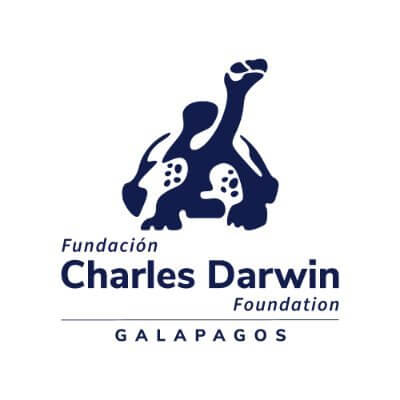The Charles Darwin Foundation for the Galapagos Islands (CDF) is recruiting a Senior Spatial Ecologist to join our shark research team and strengthen the ongoing long-term research on shark population ecology and conservation conducted by the CDF. The selected candidate will integrate the core technical team of a five-year project ("Habla Tiburón" project), funded by the United States Agency for International Development (USAID).
We are seeking a motivated professional committed to the conservation of sharks and marine ecosystems of the Galapagos Marine Reserve and wider Eastern Tropical Pacific. The research conducted by the spatial ecologist should generate state-of-the-art scientific information and improved knowledge that will provide stakeholders and decision makers with knowledge to make informed decisions related to management and conservation in the Ecuadorian Exclusive Economic Zones (EEZ), including the Galapagos Islands.
Position Objective
The Senior Spatial Ecologist will join a new project that aims to improve the long-term viability of shark and ray populations in Ecuadorian waters by: 1) strengthening participatory governance of the fisheries responsible for the highest shark catches; 2) strengthening monitoring, control and enforcement capabilities of stakeholders to combat IUU fishing in the Ecuadorian sea; and 3) collaborate with fishing sectors to implement best fishing practices to reduce by-catch and fishing mortality of sharks and rays in Ecuador.
The Senior Spatial Ecologist will be responsible for developing and implementing research to describe the spatial and population dynamics of the main oceanic shark species and the fishing dynamics of the national and international fishing fleets that catch them. As part of a team, this scientist will analyze fisheries-dependent and fisheries-independent spatial data related to shark distribution, abundance and movement as well as remote sensing data of the fishing fleets in the region. Based on these analyses, the Senior Spatial Ecologist will generate the necessary scientific information for the project activities related to the management and conservation of shark populations in Ecuadorian waters.
Activities
The selected candidate will maintain a close and active interaction with the Principal Investigators of the Shark Ecology Project. The selected person will also collaborate in close relationship with other team members and close partners of the project, including NGOs, industry and government.
Additionally, the selected candidate may co-develop collaborative initiatives with local, national and international institutions, and will work alongside the Galapagos National Park Directorate (GNDP) and with other strategic partners.
The main responsibilities of the position are:
• Conduct research on shark ecology, with a focus on understanding the spatial dynamics of shark populations and interactions with fisheries in the Eastern Tropical Pacific.
• Analyze a range of datasets (including satellite telemetry, fisheries, remote sensing and monitoring data) and employ advanced analytical techniques to investigate the distribution, abundance and area use of sharks in the region.
• Investigate the influence of environmental and anthropogenic drivers on spatial use, movement patterns and seasonal variabilities of shark populations in the region.
• Investigate shark populations dynamics, including population size, structure and trends.
• Apply ecological knowledge to identify critical areas for shark conservation and management.
• Develop and implement research to assess the effectiveness of fisheries management actions on promoting recovery of shark populations.
• Engage in a range of fieldwork activities and expeditions to collect data for the project.
• Collaborate with other scientists and stakeholders to collect and analyze data, including satellite telemetry, fisheries and social data to identify key factors affecting shark populations.
• Work closely with NGOs, government agencies and other stakeholders to promote sustainable fishing practices and support the implementation of evidence-based conservation measures.
• Assist with the capacity building and training of government officials, fisherfolks and other key stakeholders.
• Engage in educational and public outreach initiatives related to shark conservation. Deliver presentations, participate in workshops, and contribute to community engagement activities.
• Supervise and provide mentorship to junior researchers and volunteers. Foster a collaborative and inclusive work environment, ensuring the professional development of team members.
• Publish research findings in peer-reviewed journals to contribute to the regional and global knowledge on shark ecology and conservation.
• Assist on report writing and general communication of the project.
Read the full job posting, qualifications, and application information here.
Apply by October 1st for consideration.

